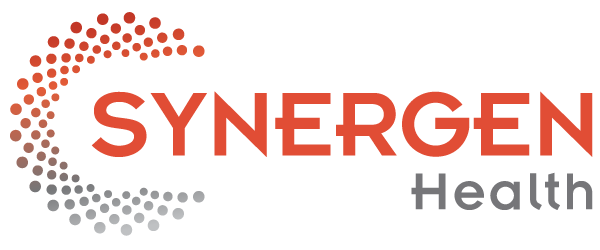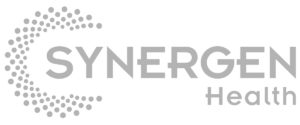Artificial intelligence (AI) is often perceived as a monolithic entity or a singular technology that powers futuristic applications and innovations.
However, AI is not a single tool but a collection of various technologies, each with distinct applications and varying levels of complexity.
For healthcare companies considering using AI to improve their revenue cycle, understanding and effectively implementing the right AI subsets can unlock significant operational efficiencies and enhanced financial performance
Robotic Process Automation (RPA)
Robotic process automation (RPA) is a technology that uses software robots or “bots” to automate repetitive and rule-based tasks traditionally performed by humans.
These bots can interact with digital systems and applications to execute tasks such as data entry, transaction processing, and customer service. RPA aims to improve efficiency, reduce errors, and free human workers to focus on more strategic activities.
RCM applications include:
- Claim processing: Bots can automate the submission and tracking of insurance claims, reducing manual effort and minimizing errors.
- Data entry and management: Automating data entry tasks can significantly reduce the time and effort required to input patient information, update records, and manage databases.
- Billing and collections: RPA can streamline the billing process, generate invoices, and manage payment collections, ensuring timely follow-ups and improved cash flow.
Machine Learning
Machine learning is a branch of AI that enables systems to learn and improve from experience without being explicitly programmed. It involves training algorithms on large datasets to recognize patterns, make predictions, and adapt to new data.
Although machine learning has existed for over 30 years, recent advancements have made it more accessible and practical for widespread use.
RCM applications include:
- Analytics: Identifying patterns in large datasets to predict outcomes. By analyzing historical data, ML algorithms can detect trends and anomalies, allowing for data-driven decision-making.
- Fraud detection: ML algorithms can detect unusual patterns and anomalies in billing and claims data, allowing organizations to identify potential fraudulent activities and prevent financial losses.
- Denial prediction: Predicting claim denials either early in the process or post-claim submission. This ability to predict denials helps organizations proactively address issues and lower their denial rate.
Deep Learning
Deep learning (DL) is a subset of machine learning involving many layers of neural networks, often called deep neural networks. It is designed to model complex patterns and representations in large amounts of data.
DL algorithms learn to extract and hierarchically organize features from raw data, enabling them to perform tasks accurately.
RCM applications include:
- Imaging analysis: Detecting conditions from medical images. Deep learning models can analyze high-resolution images, such as DICOM images in radiology, to identify diseases more accurately than traditional methods.
- Patient diagnosis: Analyzing comprehensive patient data to identify diagnoses. Deep learning can provide a more holistic view of a patient’s health by integrating family history, social history, lab data, and procedures.
- Advanced analytics: DL can uncover intricate patterns in large datasets, providing deeper insights into patient behaviors, financial trends, and operational efficiencies.
Natural Language Processing (NLP)
Natural language processing (NLP) is a field of artificial intelligence focusing on the interaction between computers and human language. It involves developing algorithms and models that enable computers to understand, interpret, and generate human language.
RCM applications include:
- Transcribing speech: Converting spoken narratives into text for electronic health records (EHRs). Automating this process saves time for healthcare professionals and ensures accurate record-keeping.
- Medical coding: Assisting in medical coding based on transcriptions. NLP can automatically assign the correct codes to procedures, reducing the likelihood of errors.
- Document analysis: NLP can extract relevant information from unstructured data, such as patient records and insurance documents to streamline administrative tasks and improve data accuracy.
Generative AI
Generative AI is a type of artificial intelligence that creates new content, such as text, images, music, or code, by learning from existing data.
It uses large language models (LLMs) to generate content that mimics the style and structure of the input data. LLMs are particularly adept at understanding and producing human-like text, enabling applications in creative industries, content generation, and automated design.
RCM applications include:
- Denial resolution: Creating justification letters for claim denials. LLMs can pull relevant information from scientific literature to craft compelling arguments for appeals.
- Patient customer service: Providing detailed, human-like explanations to patients to improve patient satisfaction by delivering clear and personalized responses.
- Data generation: Creating realistic data for testing software and machine learning models. Organizations can use the synthetic data to train models or test new applications without needing patient data.
Partnering for RCM Success
While the potential of AI in revenue cycle management is immense, leveraging these technologies effectively requires both technical expertise and a deep understanding of the revenue cycle itself.
Partnering with a specialized end-to-end RCM company that combines in-depth knowledge of these technologies with industry knowledge can ensure that your organization reaps the full benefits of AI.
Want to work with experts who can tailor AI solutions to your specific RCM needs? Let’s talk.
Not sure what your RCM needs are and want a free operations assessment? Request one here.

